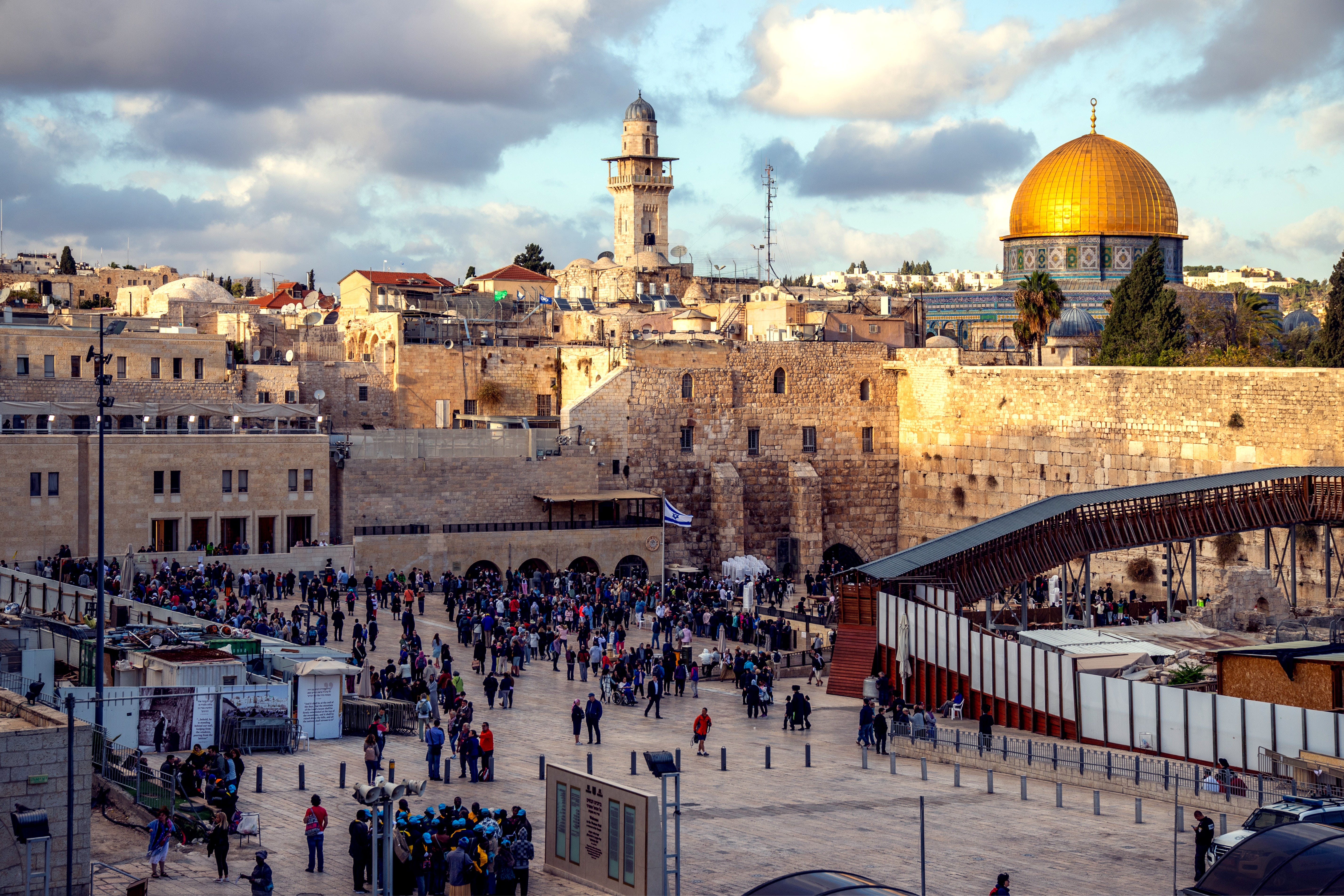In a previous essay, we outlined the concept of a human being that is presented in the revelation of Baha’u’llah. We discussed how humans have both a lower nature and a higher nature. The lower nature is the part of us that we share with animals and is concerned with fulfilling our material desires and instincts. If we were to completely give in to our lower natures, we become no different, and can behave even worse, than animals. The higher nature is the true and distinctive reality of our humanity and the part that has allowed for the growth of civilizations and increasingly peaceful societies, as through it we commit to ideals that unite us. If we reflect further upon our higher nature, it actually has two different aspects- our mind and intelligence, which is the seat of our rationality and ability to do science and other distinctive intellectual pursuits, and our heart- which is the seat of our values and ideals.
In distinguishing between the two aspects of our higher nature- rationality and heart- we can see a correlation between a common distinction philosophers make between facts and values. “Facts” correspond to scientific theories and other products of our rational mind and intelligence. “Values” are not rationally derived, and consist of our moral standards, define how we treat each other, and how we judge ourselves. Philosophers make the point that one is not derivable from the other- they are separate realities in the world- and they reflect separate aspects of us.
A simple thought experiment can highlight the distinction between facts and values- between rationality and heart. Imagine a person who is extremely smart, hyper-rational, but morally bankrupt. One can be highly knowledgeable and rational but not moral. Such people are the most dangerous people in the world. Similarly, picture another person who has the highest possible values, loves and serves all humankind without distinction, but has no knowledge of a single scientific theory and no understanding of how the world works. Those imagined people teach us that there is a distinction between these two aspects of our higher selves and both are needed to make a person “perfect”. The scenario also reminds us which part of our being is most important. Clearly, we all know which person we would invite on a weekend camping trip! Values trump facts every time. In other words, values are more foundational than facts, as facts are the most useful to us when placed in the context of values. Within a human being, though rationality and knowledge is extremely important, it is less important than our heart.
The Baha’i writings offer unadulterated praise on humanity’s rational capacity as it is an expression of our fundamentally abstract and spiritual nature-
The virtues of humanity are many, but science is the most noble of them all. The distinction which man enjoys above and beyond the station of the animal is due to this paramount virtue. It is a bestowal of God; it is not material; it is divine. Science is an effulgence of the Sun of Reality, the power of investigating and discovering the verities of the universe, the means by which man finds a pathway to God. All the powers and attributes of man are human and hereditary in origin—outcomes of nature’s processes—except the intellect, which is supernatural. Through intellectual and intelligent inquiry science is the discoverer of all things.
Science is further described by ‘Abdu’l-Baha’ as the “very foundation of all individual and national development” and is “likened to a mirror wherein the infinite forms and images of existing things are revealed and reflected”. Baha’u’lah further describes the outcome of our intelligence- knowledge- to be “as wings to man’s life, and a ladder for his ascent. Its acquisition is incumbent on everyone”. Baha’u’llah further praises scientists and “craftsmen”- engineers, artists, and other creators of useful technologies, stating that “great indeed” is their “claim’ upon the world, stating that we should always honor them. He calls knowledge a “veritable treasure for man, and a source of glory, of bounty, of joy, of exaltation, of cheer and gladness unto him”, concluding with “Thus hath the Tongue of Grandeur spoken in this Most Great Prison”.
Religion, as an expression of humanity’s higher nature, must therefore always make sense and be consistent with the outcomes of other intellectual investigations. ‘Abdu’l-Baha’ describes as both being essential to true human progress. The one enhances our factual understanding of the world, the other is primarily- though not exclusively- associated with our values. Religion and science are the two wings upon which man’s intelligence can soar into the heights, with which the human soul can progress, stating further that “there is no contradiction between true religion and science. When a religion is opposed to science it becomes mere superstition: that which is contrary to knowledge is ignorance.”
While science is far reaching in its benefits, it does not translate clearly to noble values. Noble values are not “rational” as people could- and often do- provide rational justifications for bad actions. From their own selfish perspective, their actions can be entirely “rational”.
That is why the revelations of God speak to our heart and work to develop that aspect of our being. As Baha’u’llah says in the Hidden Words-
All that is in heaven and earth I have ordained for thee, except the human heart, which I have made the habitation of My beauty and glory.
Indeed, the purpose of religion itself is not only to bring unity to humanity, and establish principles that ensure human social progress, but it opens up new vistas within our hearts. It empowers us to performs deeds of great service and virtue- willingly and joyfully!
Baha’u’llah tells us that our “heart” can make an infinite amount of progress. At the most basic level, we follow the rules. We obey stoplights and generally try to stay out of trouble, but we are mostly just acting out of convenience or a sense of duty without any conscious appreciation. But Baha’u’llah, like Christ before Him, invites us to higher level of moral and spiritual consciousness, into a different relationship with ourselves and with God- a personal relationship with God that brings to life our inner spirituality and morality in ways we could not have imagined otherwise. We become transformed by the “spirit of faith”.
The spirit of faith is highlighted in numerous passages in the Bible, Quran, and the revelation of Baha’u’llah. It reflects our connection with a transcendent spirit, one that causes us to be spiritually “alive” when we were previously dead. Being “dead” is a relative state in which we are not “alive” to the spiritual reality of who we are- and may not even acknowledge that it exists!. Famously, it is what Jesus was referring to when he talked about being “born again”-
“Verily, verily, I say unto thee, Except a man be born again, he cannot see the kingdom of God. Nicodemus saith unto him, How can a man be born when he is old? Can he enter the second time into his mother’s womb, and be born? Jesus answered, Verily, verily, I say unto thee, Except a man be born of water and of the Spirit, he cannot enter into the kingdom of God. That which is born of the flesh is flesh; and that which is born of the Spirit is spirit. Marvel not that I said unto thee, Ye must be born again. The wind bloweth where it listeth, and thou hearest the sound thereof, but canst not tell whence it cometh, and whither it goeth: so is every one that is born of the Spirit.”
Connecting with the spirit of faith is like being put on a moral and spiritual escalator, or one of those moving walkways at the airport. You can make moral and spiritual progress without it, trudging through life trying to make the best progress you can, but it really helps to connect with transcendent spirit offered by the revelations of God. They are utterly transformative of our entire outlook and inner world and the impact is felt in every part of our heart. In the analogy that Jesus gave us, it is the difference from being dead to being alive. In some other passages, it is compared to being asleep and then being awakened to a new reality.
Baha’u’llah gave many examples of the same transformation. One famous one is that is like turning copper into gold. Some of the people in Baha’u’llah’s time were trying to get rich by finding a way to turn copper into gold through the use of basic chemistry, a practice called alchemy. They were never able to find the solution- known as the “elixir”- and alchemy died out as a practice. (As a side note, humanity did eventually learn how to do this using nuclear physics.) Baha’u’llah used this practice of alchemy as an analogy for what happens to human consciousness when it is transformed by a revelation from God.
“..Consider the substance of copper. Were it to be protected in its own mine from becoming solidified, it would, within the space of seventy years, attain to the state of gold.…Be that as it may, the real elixir will, in one instant, cause the substance of copper to attain the state of gold, and will traverse the seventy-year stages in a single moment.”
This is a metaphor, as copper does not turn into gold on its own in the physical world. Human beings who are like copper, and live approximately 70 years, will grow spiritually over the course of their lifetime and can turn into gold, developing more spiritual and moral maturity, unless they become “solidified” by being overly attached to the world or their own egos. But people can make the same amount of progress with the “spirit of faith”- as an inner spiritual response to a revelation from God- that would take a whole lifetime otherwise. Baha’u’llah refers, in this analogy, to the spirit of faith as being the “Divine Elixir”.
Likewise, these souls, through the potency of the Divine Elixir, traverse, in the twinkling of an eye, the world of dust and advance into the realm of holiness; and with one step cover the earth of limitations and reach the domain of the Placeless. It behooveth thee to exert thine utmost to attain unto this Elixir which, in one fleeting breath, causeth the west of ignorance to reach the east of knowledge, illuminates the darkness of night with the resplendence of the morn, guideth the wanderer in the wilderness of doubt to the well-spring of the Divine Presence and Fount of certitude, and conferreth upon mortal souls the honour of acceptance into the Ridván of immortality. Now, could this gold be thought to be copper, these people could likewise be thought to be the same as before they were endowed with faith.
He refers to it as a “mystic transformation” and highlights it in many other passages, including this one, that explains what happens when one spiritually connects to a revelation from God-
Whensoever the light of Manifestation of the King of Oneness settleth upon the throne of the heart and soul, His shining becometh visible in every limb and member. At that time the mystery of the famed tradition gleameth out of the darkness: “A servant is drawn unto Me in prayer until I answer him; and when I have answered him, I become the ear wherewith he heareth….” For thus the Master of the house hath appeared within His home, and all the pillars of the dwelling are ashine with His light.
It should be noted that, unlike some interpretations within Christianity, Baha’u’llah is not saying that only those people who have experienced this transformation go to “heaven”, or become “saved”, whereas others are somehow condemned. It’s just a metaphor for spiritual transformation, and those terms reflect a relative state of spiritual understanding. He makes clear that all people can make spiritual and moral progress in life- no matter what their belief system- and indeed all people will continue to make progress after their death through the “worlds of God”. Indeed, progress is the entire purpose of life and Baha’u’llah goes even so far as to say everything in creation has educational value-
Out of the wastes of nothingness, with the clay of My command I made thee to appear, and have ordained for thy training every atom in existence and the essence of all created things.
But the pot of gold at the end of the rainbow is the spiritual energies that flow through the revelations of God, something we will all come to appreciate eventually. He clearly states that it should be seen as a further advancement in our commitment to moral and spiritual principles, and not a replacement for the foundation of civil society- “It behoveth everyone to traverse this brief span of life with sincerity and fairness. Should one fail to attain unto the recognition of Him Who is the Eternal Truth, let him at least conduct himself with reason and justice.”
When a person becomes illumined by the spirit of faith, not only can they make tremendous progress as a human being, but they begin to experience life in a whole new way. Baha’u’llah describes it this way-
Then will the manifold favors and outpouring grace of the holy and everlasting Spirit confer such new life upon the seeker that he will find himself endowed with a new eye, a new ear, a new heart, and a new mind. He will contemplate the manifest signs of the universe, and will penetrate the hidden mysteries of the soul. Gazing with the eye of God, he will perceive within every atom a door that leadeth him to the stations of absolute certitude. He will discover in all things the mysteries of Divine Revelation, and the evidences of an everlasting Manifestation.
Though the language is metaphorical, Baha’u’llah is describing a spiritual state in which you begin to see the world, not as a purposeless wasteland, but brimming with life and beauty.
“Within every blade of grass are enshrined the mysteries of an inscrutable Wisdom, and upon every rose-bush a myriad nightingales pour out, in blissful rapture, their melody…Each and every thing, however small, would be to him a revelation, leading him to his Beloved, the Object of his quest.”
As noted above, after this spiritual transformation, we are endowed “with a new eye, a new ear, a new heart, and a new mind”. We see the world from a broader perspective, one that is infused with purpose and meaning.
This is a reality that is better experienced than explained. What He is expressing to us is a change in consciousness, one that pulls us out of our materialistically focused lives into a life of faith- faith in ourselves, faith in the ultimate moral and spiritual purpose of the universe, and ultimately faith in the future and potential of humanity.
The other aspect of this transformation is that it cannot be fully encompassed by reason. We can experience it, appreciate its bounties, but ultimately these “steps of the spirit” supersede rationality. Because the reality of the world ultimately transcends the limited things we can encompass with our rational minds, over-reliance on rationality can actually become a hindrance to our spiritual development. Ultimately, the development of our moral and spiritual selves requires that we have “faith”, an increasing reliance on the “arc of the moral universe”- as Dr Martin Luther King expressed it. That is not a purely rational process, but is an affair of the heart. In one passage, Baha’u’llah gives an example of a “learned grammarian”- a man who was so caught up in his own mind that he was afraid to take the leap of faith required to experience genuine spirituality-
The story is told of a mystic knower, who went on a journey with a learned grammarian as his companion. They came to the shore of the Sea of Grandeur. The knower straightway flung himself into the waves, but the grammarian stood lost in his reasonings, which were as words that are written on water. The knower called out to him, “Why dost thou not follow?” The grammarian answered, “O Brother, I dare not advance. I must needs go back again.” Then the knower cried, “Forget what thou didst read in the books..and cross the water.”
In a similar statement, He quotes an Islamic tradition- “All human attainment moveth upon a lame ass, whilst Truth, riding upon the wind, darts across space”.
Reason is powerful and the source of our understanding of the world, but we have to be careful not to be limited by it, because spiritual truths are transcendent and require a commitment of the heart. Indeed, one can have profound understanding of spiritual truths and not be learned at all. Christ’s first apostle, Peter, was reportedly illiterate. One of Baha’u’llah’s most trusted believers, the one he most trusted to courier Tablets from Him to other believers throughout the Middle East, was similarly illiterate, but his spiritual understanding was profound. He cautions us to not allow our learning to make us proud, and explicitly states that the understanding of the Word of God, in every revelation, is not dependent on knowledge. “The understanding of His words and the comprehension of the utterances of the Birds of Heaven are in no wise dependent upon human learning. They depend solely upon purity of heart, chastity of soul, and freedom of spirit.”
Baha’u’llah’s revelation, like the revelations before it, is intended to open up the universe of meaning that exists within our own hearts and reveal it to us. The language Baha’u’llah uses to describe the life of faith He lays out is so compelling and beautiful that it makes your heart dance and leap.
O My servants! Could ye apprehend with what wonders of My munificence and bounty I have willed to entrust your souls, ye would, of a truth, rid yourselves of attachment to all created things, and would gain a true knowledge of your own selves—a knowledge which is the same as the comprehension of Mine own Being. Ye would find yourselves independent of all else but Me, and would perceive, with your inner and outer eye, and as manifest as the revelation of My effulgent Name, the seas of My loving-kindness and bounty moving within you. Suffer not your idle fancies, your evil passions, your insincerity and blindness of heart to dim the luster, or stain the sanctity, of so lofty a station.
In summary, a human being consists of a lower nature, which we share with animals and a higher nature that consists of both our rational intellect and our heart- the seat of our ideals and values and through which we can make spiritual progress. The spirit of faith is a gift of each of the Revelations from God, and is like a spiritual elevator that can propel us upward in our spiritual journey to heights we could not have even imagined for ourselves without it. As we grow spiritually, we not only become better people, but our internal world becomes filled with light and we start to see the world differently, in a broader and more transcendent way, in a manner that was previously veiled to us. We become so wedded to that new perspective that, as Baha’u’llah states, a “moment’s separation from it would be unthinkable”. It becomes our new Beloved, and we carry it with us in our heart wherever we go and with whomever we interact.









